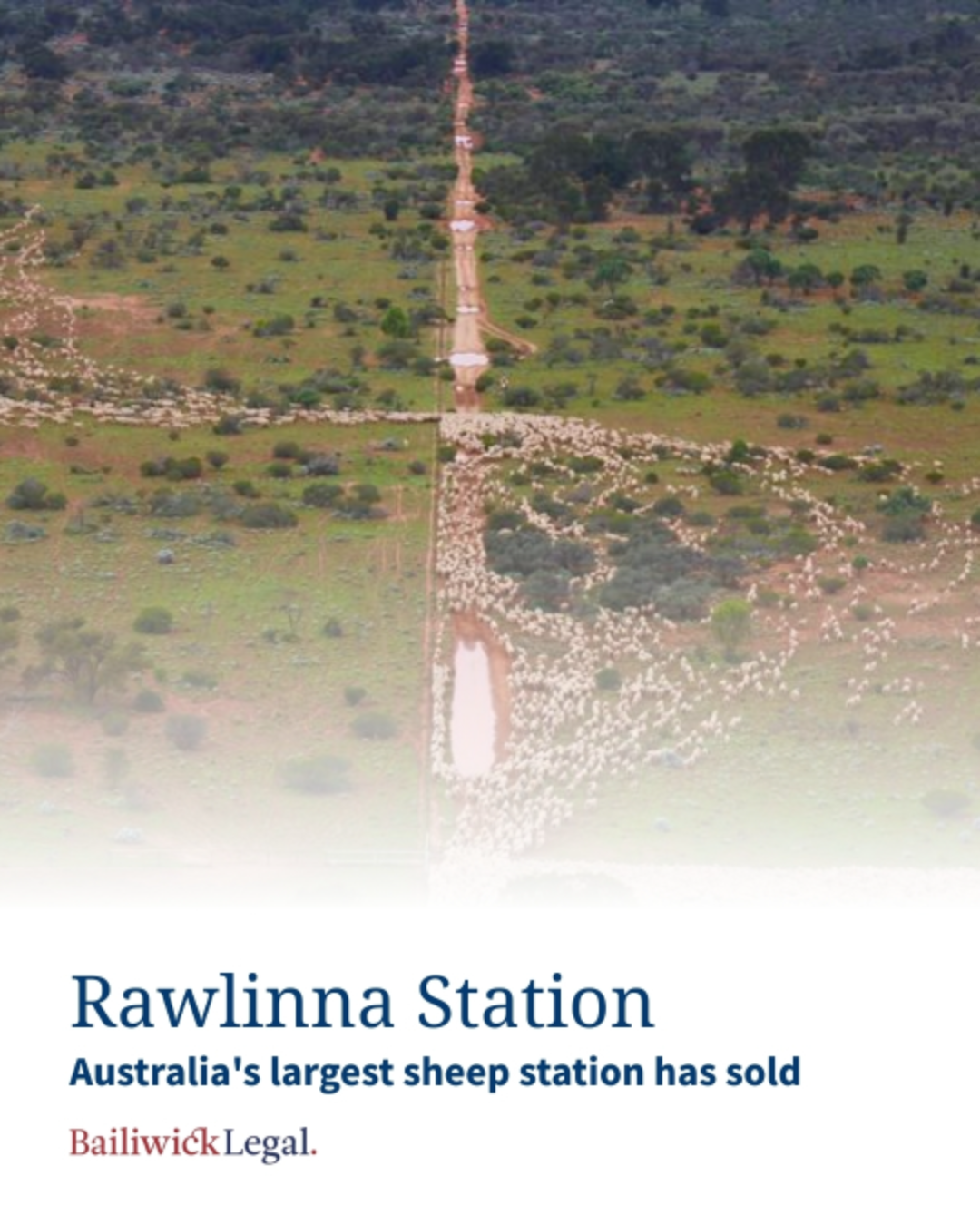Social Media Users Beware - Who is responsible for publications on social media?
February 19, 2026
Author name
In September 2021, the High Court held in Fairfax Media Publications Pty Ltd v Voller; Nationwide News Pty Limited v Voller; Australian News Channel Pty Ltd v Voller
(Voller) that media outlets may be held accountable for comments made by third party users on their Facebook pages as publishers. By extension, it is foreseeable that companies and organisations may now be held to be liable in defamation for comments that are made by third parties on their social media platforms.
What is defamation?
In summary, defamation is the action of damaging the good reputation of someone, whether it be a company or individual, by communicating a defamatory meaning which may arise from the imputations of the publication.
An essential element of defamation law in Australia is that the material must be published. Publication can occur by a variety of methods of communication, including by spoken words or audible sounds, written or printed matter, drawings or photographs, signs or gestures, broadcast or telecast material, live theatrical performances or the display of objects in public.
Intention is not an essential element of defamation. A person or entity can be held liable for publishing defamatory material even if they did not intend to defame anyone. A person can also be held liable as the publisher of defamation if they failing to act or remove the defamatory material.
Voller case: the background
Dylan Voller was a young Aboriginal man who was mistreated in a Northern Territory youth detention centre. Mr Voller’s mistreatment was documented in an ABC Four Corners Report in 2016 which then sparked a Royal Commission into youth detention in the Northern Territory. After the Royal Commission commenced, Mr Voller began making media appearances to discuss his mistreatment. Different media outlets began sharing stories, interviews and videos of Mr Voller on their Facebook pages. Some Facebook users began leaving defamatory comments of Mr Voller on the Facebook pages of those media outlets that had shared content about Mr Voller.
Instead of suing the authors of those defamatory comments, Mr Voller sued the media outlets (Fairfax Media, Nationwide News and Sky News) arguing that they were responsible for publishing the defamatory comments.
Voller case: the argument
The Voller case was initially heard in the Supreme Court of NSW. The primary judge considered whether Mr Voller had "established the publication element of the cause of action of defamation against the defendant[s] in respect of each of the Facebook comments by third-party users". The media outlets argued that there was no case against them but the Supreme Court found in favour of Mr Voller and held that the media outlets held the burden of publishing the defamatory content.
This decision was appealed to the NSW Court of Appeal and then to the High Court.
The High Court dismissed the appeal and ultimately held that the media outlets were the publishers of the third-party Facebook user comments, affirming the decision made by the Supreme Court. In the reasons for their decision, the majority said that “each appellant by the creation of a public Facebook page and the posting of content on that page, facilitated, encouraged and thereby assisted the publication of comments from third-party Facebook users.” The High Court said that any degree of participation in the process of communication, however minor, makes the participant a publisher
Implications of the decision
The decision confirmed that media outlets have an active responsibility to monitor and censor comments that are damaging or inappropriate that are published on their Facebook pages.
Prior to the Voller decision, social media platforms (such as Facebook) did not provide users with the option to turn off comments made on their pages. However, Facebook has since modified their platform to provide users with greater control over comments published on their page.
What does this mean for you?
The effect of this decision will likely extend beyond media outlets and Facebook and apply to all people and organisations that maintain their own social media platforms. It is therefore important for all people and organisations that maintain their own social media platforms to ensure they tighten up their review mechanisms and make an active effort to regularly monitor what third parties are publishing on their pages.
By Danielle Williams (Associate) and Matilda Lloyd (Paralegal)
If you would like further information in relation to how the above matters may affect your business, please contact us on (08) 9321 5451 or by email at office@bailiwicklegal.com.au.
For further information about our legal services, please visit our website: https://www.bailiwicklegal.com.au/
The above information is a summary and overview of the matters discussed. This publication does not constitute legal advice and you should seek legal or other professional advice before acting or relying on this information.

Bailiwick Legal has been honoured to support Forever Wild over the past few years as they delivered one of the most significant conservation land acquisition programs undertaken in Western Australia. Our team assisted Forever Wild with the strategic purchase of four pastoral stations, Narndee , Boodanoo , Meeline and Challa , transactions that now connect three State Reserves and protect more than 12,000 square kilometres of land. To put that scale into perspective, the combined area is approximately five times the size of the ACT and nearly one-fifth the size of Tasmania . Navigating complexity at scale These were not straightforward property transactions. Each acquisition involved: Multiple pastoral leases Layered regulatory and approval pathways Significant operational and on-ground assets Numerous stakeholders across government, industry and land management Our role was to guide Forever Wild through this complexity with clarity, precision and confidence, ensuring each transaction progressed efficiently while managing risk and safeguarding long-term objectives. “ Forever Wild is creating a world-leading model for nature funding that demonstrates we can manage viable, working pastoral stations whilst also restoring and protecting local ecological flora and fauna, and engaging and supporting Indigenous people and local communities. Complex & challenging, but this initiative could literally change the world .” Jessica Brunner - Director, Bailiwick Legal A growing and evolving legal landscape Large-scale conservation acquisitions sit within an emerging and increasingly complex legal field , intersecting land tenure, pastoral regulation, environmental frameworks and commercial considerations. These matters demand a deep understanding of both the legal mechanics and the practical realities of operating in regional and remote Australia. Our team’s experience in agribusiness, pastoral land transactions and regulatory approvals allowed us to support Forever Wild at every stage, from strategic structuring through to completion. Proud to support leadership in nature finance Forever Wild is widely recognised as an industry leader and a steadfast advocate for nature finance initiatives , helping pave the way for greater accessibility and innovation in conservation funding and land stewardship. We are proud to have contributed our relationships, expertise and practical legal insight to help Forever Wild achieve its vision, and to have played a role, however small, in shaping a groundbreaking future for conservation in Australia. At Bailiwick Legal, we value the opportunity to work alongside organisations that are thinking long-term, acting boldly, and creating outcomes that extend well beyond the transaction itself. For assistance with all of your agribusiness needs, contact Bailiwick Legal on 08 9321 5451 or email office@bailiwicklegal.com.au For further information about our legal services, please visit our website: https://www.bailiwicklegal.com.au The above information is a summary and overview of the matters discussed. This publication does not constitute legal advice and you should seek legal or other professional advice before acting or relying on any of the content.

Bailiwick Legal Advises on Landmark Acquisition of Rawlinna Station by Consolidated Pastoral Company
Bailiwick Legal is proud to have acted for Consolidated Pastoral Company (CPC) in its successful acquisition of Rawlinna Station , Australia’s largest sheep station, located on the remote Nullarbor Plain in Western Australia. Spanning over 1 million hectares and running approximately 30,000 sheep , Rawlinna is an iconic pastoral asset with a rich legacy, having been held by the MacLachlan family’s Jumbuck Pastoral Company since its establishment in 1962. The sale marks the first change of ownership in over six decades and was finalised following formal approval from the Western Australian Government for the transfer of the pastoral leases. This transaction involved navigating: The transfer of three separate pastoral leases Coordination across multiple vendor entities Consideration of livestock and operating assets Fulfilment of regulatory and compliance requirements, including WA lease approval processes Bailiwick Legal is a boutique agricultural and regional law firm , proudly based in Perth and Bridgetown, Western Australia. Our role in this acquisition demonstrates that deep sector knowledge, local insight, and personalised legal support are crucial for agribusiness clients managing complex, high-value transactions. Our team, led by our regionally-based solicitor, Matilda Lloyd, provided end-to-end legal and strategic support, including: Due diligence on land tenure and operating assets Contract negotiation and preparation Advice on regulatory approvals and compliance Strategic coordination with CPC’s internal and external stakeholders to ensure a smooth and timely settlement We are honoured to have supported CPC in this milestone acquisition and look forward to watching Rawlinna’s next chapter unfolds. At Bailiwick Legal, we believe that regional expertise, deep industry knowledge, and relationship-based service remain essential to agribusiness success, no matter the scale. Congratulations to all parties involved, including the MacLachlan family, whose stewardship of Rawlinna leaves a lasting legacy in Australian agriculture. – The Bailiwick Legal Team Working alongside agribusinesses to grow, transition, and thrive . For assistance with all of your agribusiness needs, contact Bailiwick Legal on 08 9321 5451 or email office@bailiwicklegal.com.au By Matilda Lloyd (Associate) For further information about our legal services, please visit our website: https://www.bailiwicklegal.com.au The above information is a summary and overview of the matters discussed. This publication does not constitute legal advice and you should seek legal or other professional advice before acting or relying on any of the content.











